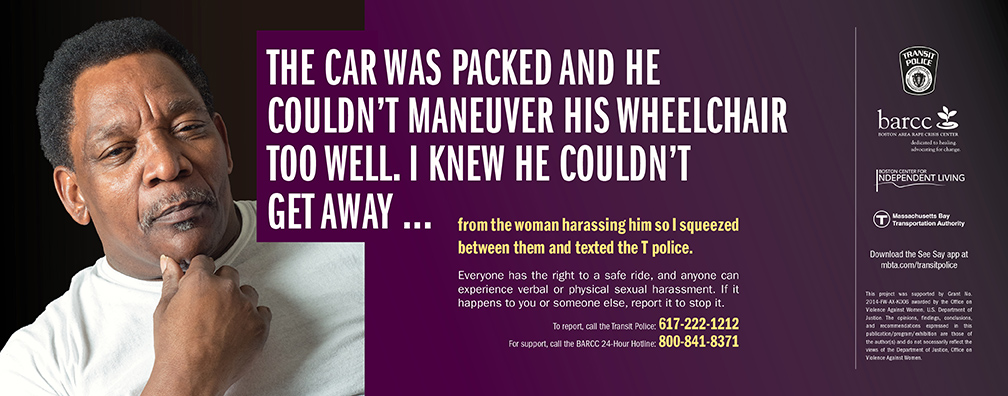 Massachusetts Bay Transportation Authority (MBTA) has launched a new wave of ads! 800 posters will be on public transit until February.
Massachusetts Bay Transportation Authority (MBTA) has launched a new wave of ads! 800 posters will be on public transit until February.
“The campaign is explicitly inclusive of people with disabilities, both as people who may experience sexual harassment and as people who can intervene to prevent sexual violence,” Yen-Ewert said. “National and state studies show that people with disabilities experience sexual violence at two times the rate compared to people without disabilities.”
Karen Schneiderman, the senior advocacy specialist at the Boston Center for Independent Living, said the campaign “raises awareness about the issue of sexual violence against people with disabilities and the importance of having services that are accessible to all. I also appreciate that this campaign highlights people with disabilities in the role of assisting others, not just as people who are victimized.”
Learn more at MBTA.com.
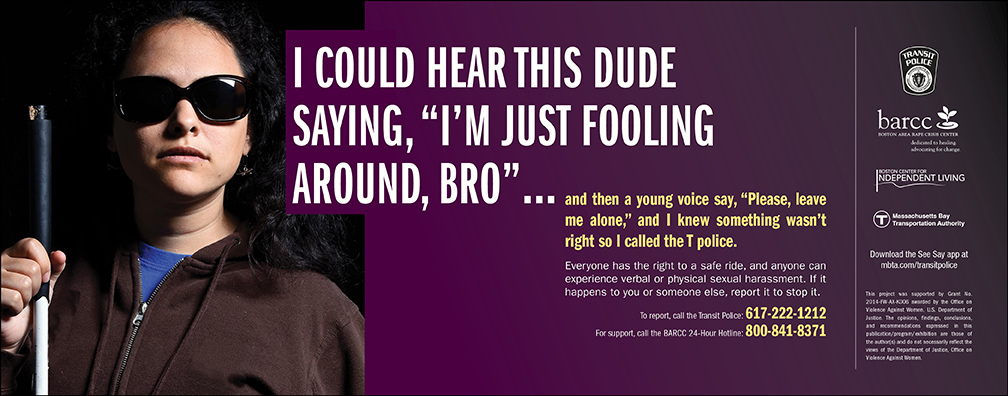
Way to go, Boston! I also appreciate how they say they can be people who intervene, as well people who experience sexual harassment, recognizing they can have agency and take action.
MBTA has a nearly nine year history of anti-harassment ads. The first wave of ads went up in 2008, the next in 2009 and then the next in 2013. I’m glad to see them continue tackling this issue. Kudos also goes to the Boston Area Rape Crisis Center for their partnership on the ads over the years.
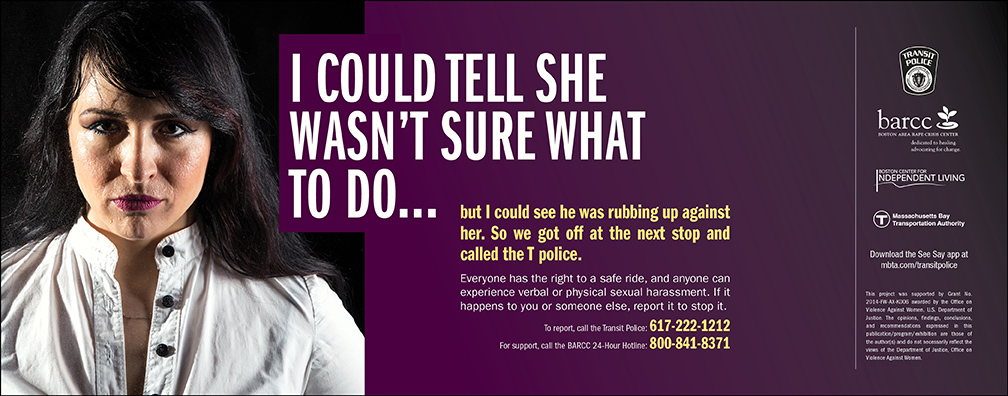

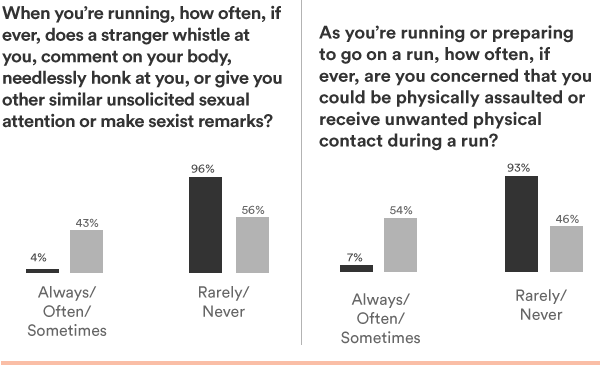
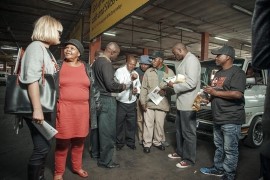
 Abusive male passengers and taxi drivers can make riding public transport in Johannesburg a harrowing experience for a woman. More often than not, a woman faces harassment or sexual abuse aboard a taxi. Taxi drivers and the queue marshals have a notorious reputation for this and there have been many recorded and unrecorded incidents of verbal abuse, harassment, physical violence, sexual assault and rape of girls and women whilst using taxis. One lady spoke to me about how some men thought it funny to poke her breast and how paralysed with fear she felt as she could not stand up and leave the taxi. The other passengers simply looked on and ignored that she was being harassed.
Abusive male passengers and taxi drivers can make riding public transport in Johannesburg a harrowing experience for a woman. More often than not, a woman faces harassment or sexual abuse aboard a taxi. Taxi drivers and the queue marshals have a notorious reputation for this and there have been many recorded and unrecorded incidents of verbal abuse, harassment, physical violence, sexual assault and rape of girls and women whilst using taxis. One lady spoke to me about how some men thought it funny to poke her breast and how paralysed with fear she felt as she could not stand up and leave the taxi. The other passengers simply looked on and ignored that she was being harassed.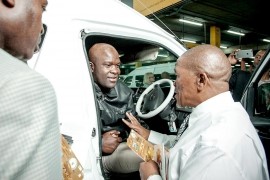
 Sonke Gender Justice
Sonke Gender Justice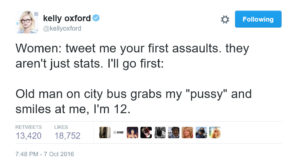 The most visible response is happening over Twitter. On Friday night, author Kelly Oxford
The most visible response is happening over Twitter. On Friday night, author Kelly Oxford